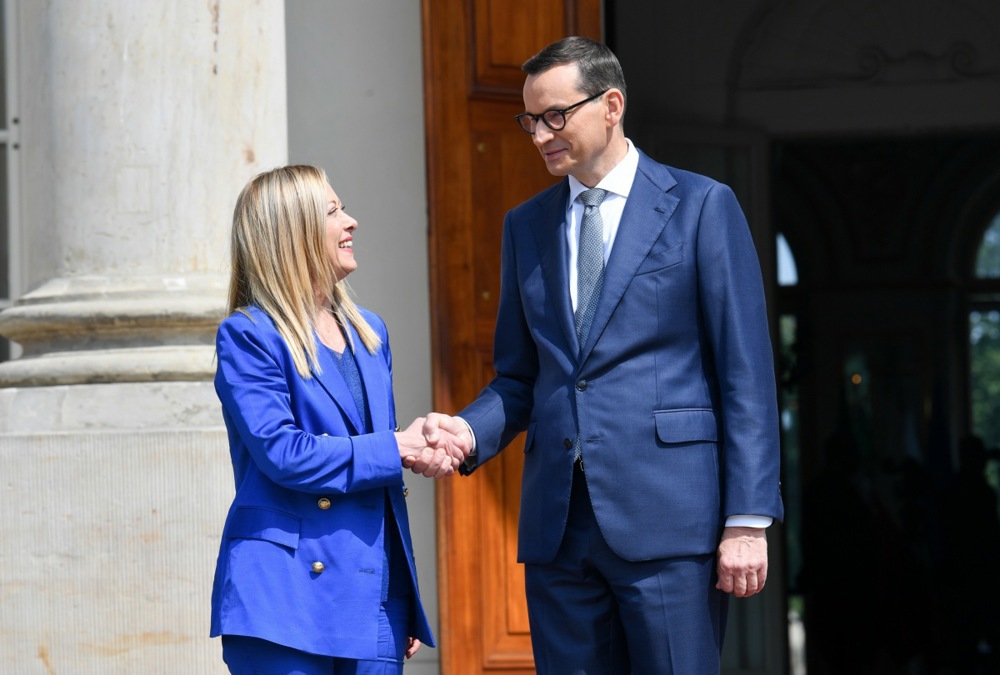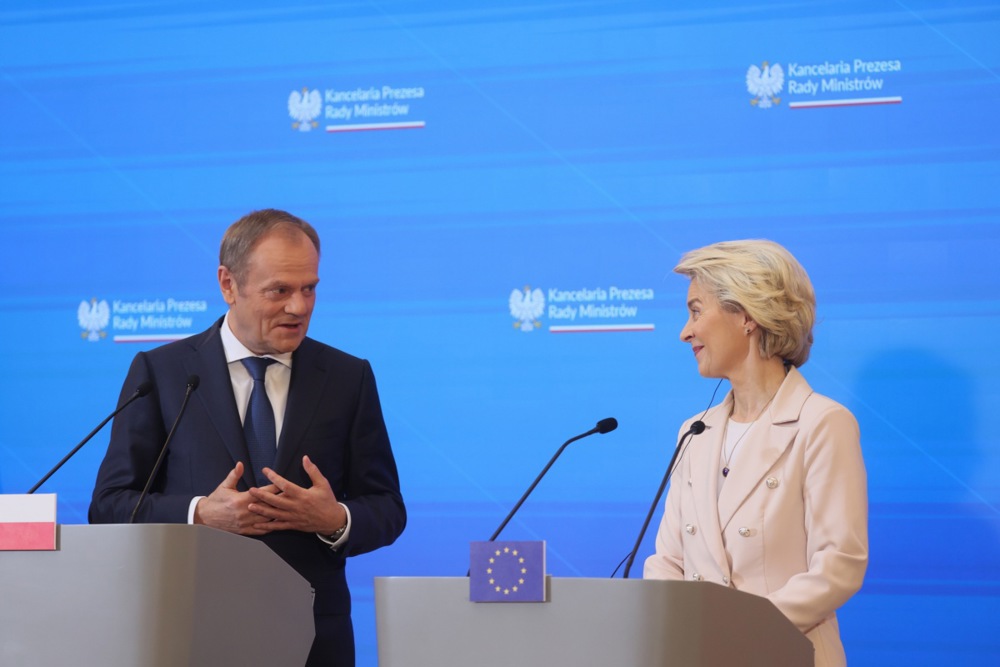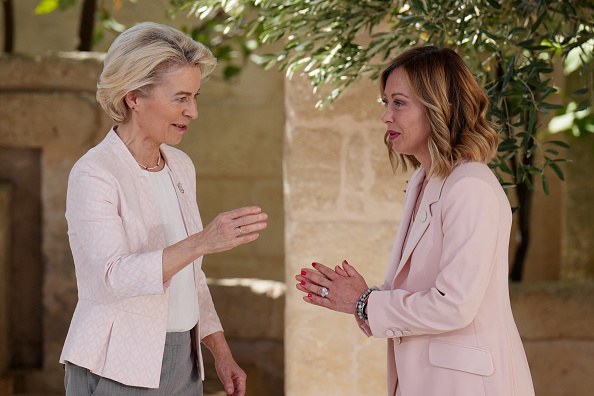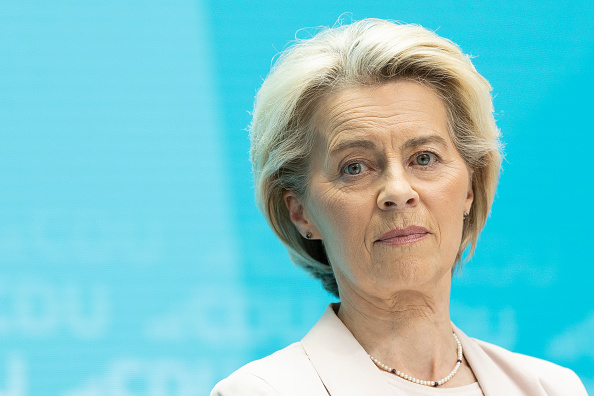Poland’s PiS MEPs voted against Ursula von der Leyen in the European Parliament’s ballot on her future. As Poland’s main opposition party, the Conservatives have been the most vocal member of the European Conservatives and Reformers (ECR) group in opposing her re-election.
In 2019, the PiS MEPs had backed von der Leyen, saying they were doing so to prevent the Netherlands’s Frans Timmermans becoming President of the European Commission.
Five years later, the PiS members instead believe von der Leyen worked with their political opponent, Poland’s current PM Donald Tusk, to bring down the previous PiS government.
They also accuse her of breaking a promise that Poland would receive post-pandemic funding in the light of the country’s stance on helping Ukraine.
“We can all see that the EU is in crisis with less trust in EU institutions and with Europeans’ living standards falling,” PiS MEP Joachim Brudziński said during the EP debate on von der Leyen’s nomination.
“The cost of living is rising because the left-liberal establishment is living the illusion that it can save the planet with its climate policies that are in fact leading to economic suicide,” Brudziński argued.
Businesses “are fleeing our continent. Farmers are demonstrating in the streets. The EU’s economy is losing its competitiveness,” he added.

The PiS MEP blamed von der Leyen for many of these very problems.
“Dear Ursula von der Leyen, you have been a very poor President of the EC, maybe the worst in its history,” said Brudziński.
“As the ECR we backed you, even though we were not enthusiastic, as your opponent was the fanatical Frans Timmermans. I recall a meeting with you at which you made several promises you never kept. This time around we will not be fooled again,” he said.
Von der Leyen’s management style was “dreadful” with decisions being taken “in small groups of German advisers and with arrogance, hypocrisy, secrecy and the obsession with your own image”, Brudziński argued.
Piotr Müller, another PiS MEP, on X criticised von der Leyen’s remarks about the need to wean the EU from Russian energy sources.
“She’s woken up! What hypocrisy from the lips of a former German minister in a government that developed the Nord Stream 2 gas pipeline with Russia,” he said.
Müller also mocked her declaration that Europe needed to invest more in defence.
“Another wake up call. Poland has for years been investing in defence, exceeding NATO guidelines. And what did Germany do? And who was the minister of defence in Germany?” he said.
Von der Leyen had previously been defence minister in the German government of Chancellor Angela Merkel.
However not all of the ECR’s MEPs voted against von der Leyen.
Czech MEP Veronika Vrecionová said on X that, though she believes the Green Deal requires major changes, she wanted to be constructive and gave von der Leyen a second term.
Another Czech ECR MEP, Ondřej Krutílek, voted for von der Leyen, “through gritted teeth,” he said in a post on the social media.
“I gave her a chance to show that she is serious about a more sensible approach to competitiveness,” he explained.
Other ECR MEPs, such as Czech former defence minister Alexandr Vondra, remained tight lipped, saying that it had been a secret ballot and they would not say how they had voted.
The PiS has 20 MEPs in the current European Parliament.
After some consideration, it decided to remain in the ECR, despite being wooed by the Patriots group set up by Hungarian PM Viktor Orbán.
The PiS supported the EU’s stance on Ukraine, and when in government pressed for a stronger EU response to the Russian invasion.
However, PiS relations with Ukraine cooled after Kyiv disregarded PiS pleas to limit grain exports to Poland. Zelensky also ignored requests from Warsaw to characterise the Volhynia massacre of Poles during the Second World War as genocide.
There was tension between PiS and Italian PM Giorgia Meloni’s Fratelli d’Italia, both over positions within the ECR and for Meloni flirting with von der Leyen.
However, in the end, the PiS’s opposition to von der Leyen appears to have been the majority position within the ECR.





